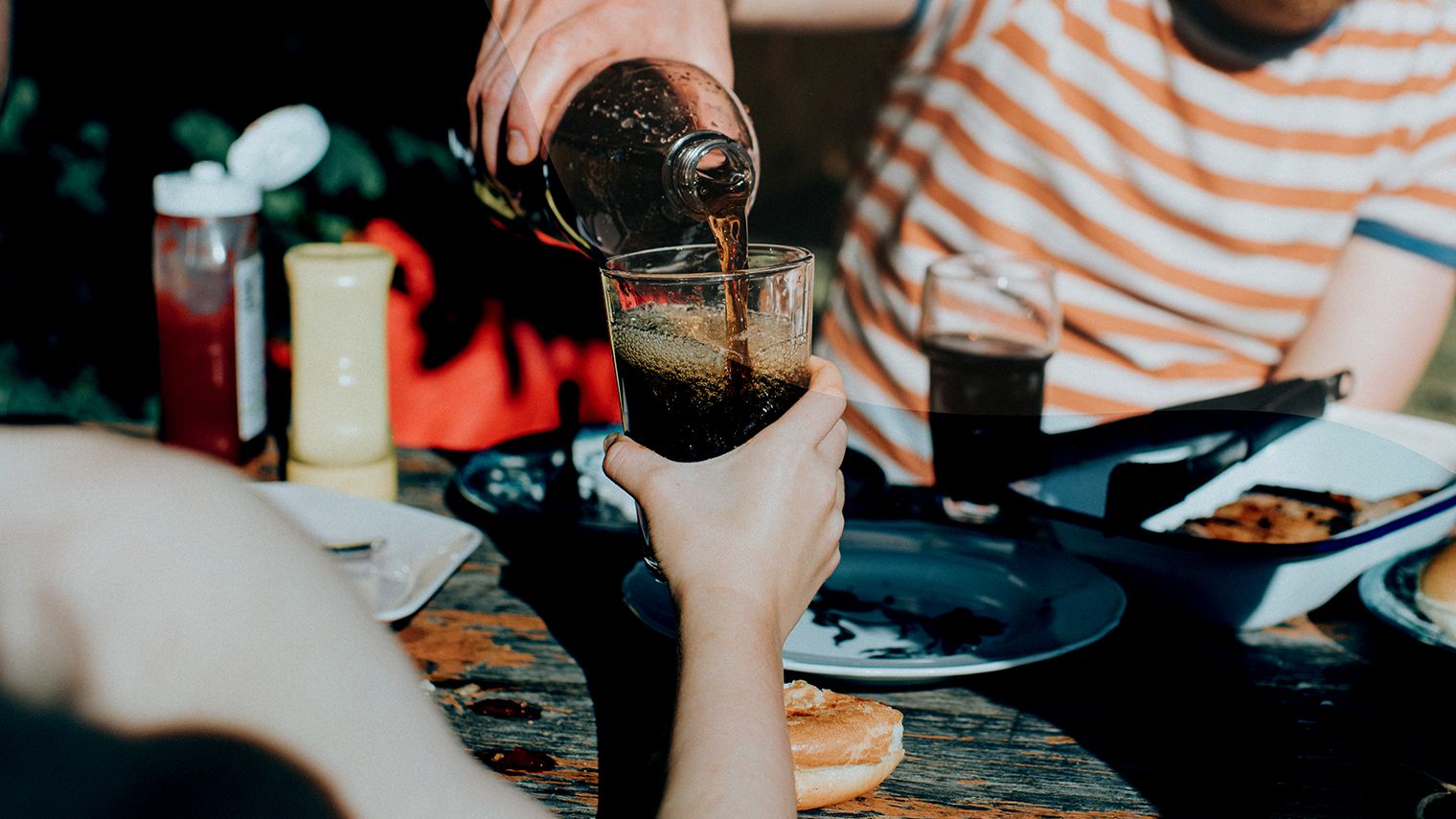Fast-Acting Carbs: What They Are and When to Eat Them
May 29, 2024
Content created for the Bezzy community and sponsored by our partners. Learn More

Photography by Catherine Falls Commercial/Getty Images
Fast-acting carbs can be a great option if your blood sugar drops too low and you have to raise it fast.
Fast-acting carbs help raise your blood sugar quickly. They are found in foods with high sugar content and low protein and fat content. They’re called “fast-acting” because your stomach quickly breaks down these foods, allowing sugar to enter your bloodstream rapidly.
It’s important to understand which foods have fast-acting carbs, how they affect you, and when to eat them. They can be your best friend when you experience hypoglycemia (low blood sugar) and need to raise your blood sugar quickly.
But when you’re dealing with high blood sugar, you probably want to avoid or limit foods with fast-acting carbs.
Types of fast-acting carbs
Several foods contain fast-acting carbs. Some options are generally healthier than others, but they all affect your blood sugar levels similarly.
Juices
Fruit juices contain a large amount of sugar. For example, an 8-ounce (oz) glass of apple juice has about 11.5 grams (g) of sugar.
You may want to drink a glass of juice if you start to feel shaky or weak or notice other changes that signal a low blood sugar level.
Avoid drinking fruit juice if your blood sugar levels are elevated and you’re trying to bring them down.
Candies
Candy is a major source of fast-acting sugar. Hard candies are basically pure sugar and contain about 4 g of sugar per piece. Other forms of candy, such as gummies, may contain more or less sugar but have a similar effect on blood sugar levels.
In general, if your blood sugar isn’t well managed, you should avoid candy or look for sugar-free versions.
Soda
Soda contains a large amount of added sugar. A single 12-oz can of soda has 36.8 g of sugar.
If you notice early symptoms of hypoglycemia, such as shakiness, irritability, or weakness, drinking a can or glass of soda can help quickly increase your blood sugar levels.
If your blood sugar isn’t well regulated or if you’re trying to keep your levels steady, you may want to drink diet soda or avoid soda altogether.
Energy drinks
Energy drinks contain similar amounts of sugar to sodas. One 12-oz energy drink contains about 37.6 g of sugar. They’re also packed with caffeine to help boost your energy levels.
While energy drinks may be an option to quickly raise your blood sugar levels if they dip too low, consider avoiding these drinks in most circumstances.
A small 2018 study suggests that energy drinks can also elevate blood pressure levels and increase discomfort in healthy young adults.
How to prevent hypoglycemia
Preventing hypoglycemia often starts with managing your type 2 diabetes. The American Diabetes Association (ADA) suggests that this might look like:
- taking medications to help lower your blood sugar levels
- managing your eating habits and paying attention to how, what, and when you eat
- getting regular physical activity
The ADA says the best way to know whether your blood sugar levels are within the normal range is to check them regularly throughout the day.
Consider checking them before and after every meal. Your doctor or another specialist may recommend additional testing times.
If your levels start to dip, it may be time to eat a small meal or healthy snack to bring them back up to normal.
In some cases, according to the ADA, you may not be able to rely on your body to tell you that your blood sugar levels are dangerously low. Some people can develop hypoglycemia unawareness.
Someone with hypoglycemia unawareness may no longer feel or recognize the symptoms of hypoglycemia, so they don’t know when they need to take steps to correct it. According to a 2024 research review, the following factors might increase your risk of hypoglycemia unawareness:
- alcohol consumption
- exercise
- diabetes that you’ve had for a long time
- intense management of your blood sugar levels
- past sepsis infection
- kidney failure
- previous severe episodes of hypoglycemia
Remember that changes to your routine — such as exercising more, spreading out your meals, drinking alcohol, or changing your diet or lifestyle in other ways — can also affect your blood sugar levels.
Make sure you discuss changes to your routine with a doctor. They may want to adjust your medications or offer suggestions on safely making changes.
Takeaway
Fast-acting carbs help increase your blood sugar levels quickly.
They can help treat the early stages of hypoglycemia, but you should avoid them when you have elevated blood sugar levels.
Several fast-acting carb options are available, including soda, energy drinks, fruit juices, and candies. You may want to keep a few options readily available in case your blood sugar levels dip too low.
The best way to prevent hypoglycemia is to manage your blood sugar levels with medication and lifestyle habits and check your levels regularly.
Medically reviewed on May 29, 2024
4 Sources


Like the story? React, bookmark, or share below:
Have thoughts or suggestions about this article? Email us at article-feedback@bezzy.com.
About the author